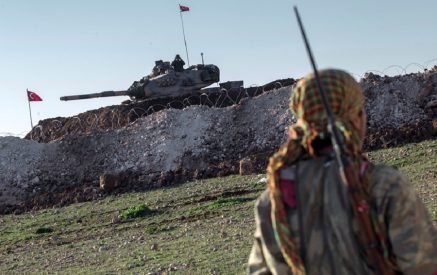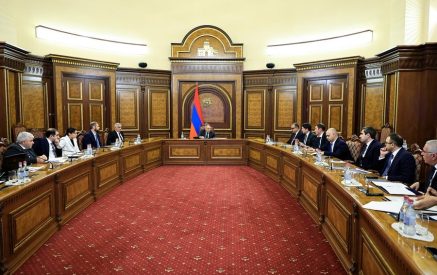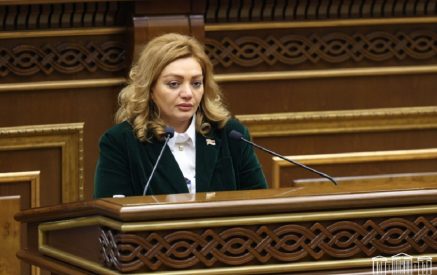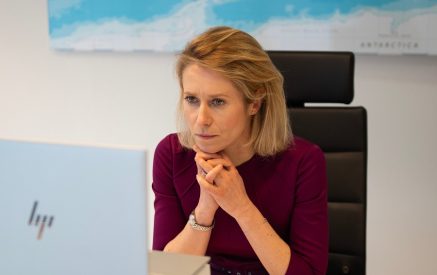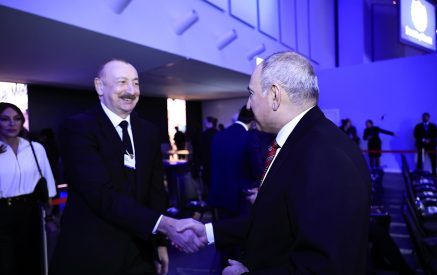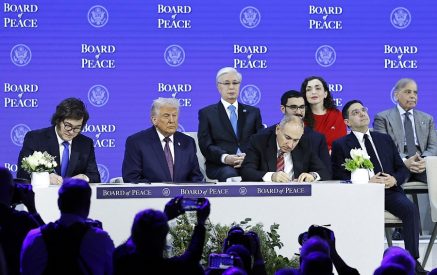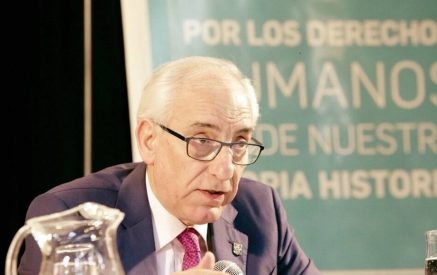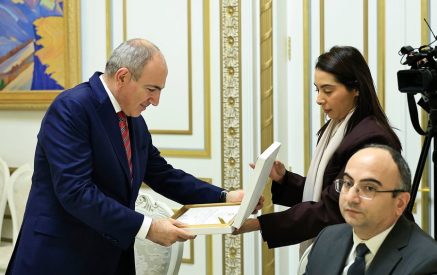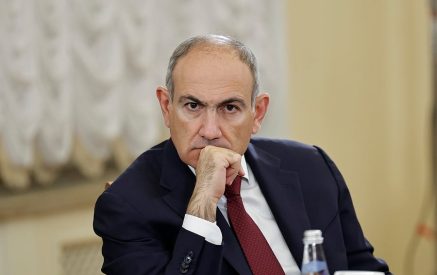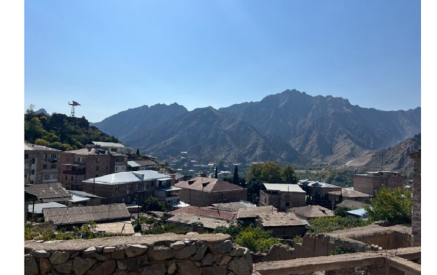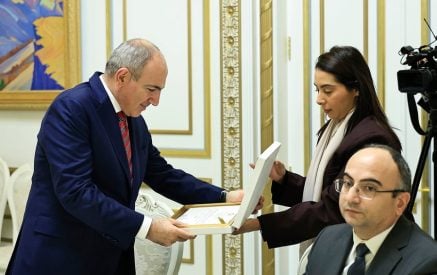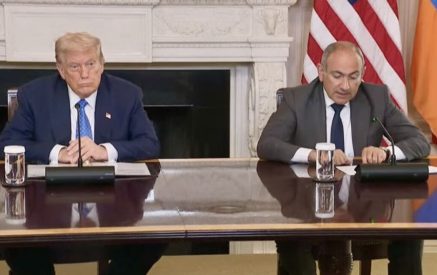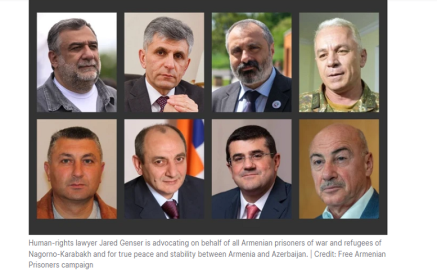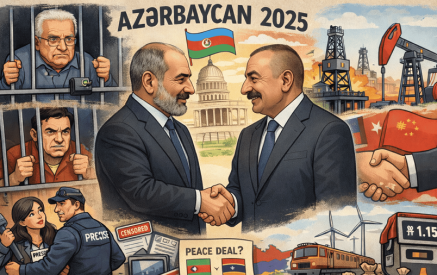JAMnews. Top stories in local media.
Friday, August 15, Armenia.
● Armenian Prime Minister Nikol Pashinyan, in an interview with Fox News, commented on the agreements reached with the President of Azerbaijan during the Washington meeting last Friday. “It is impossible to change everything in one day, or even in a week, a month, or a year. But there is one very important fact. We both — I mean President Aliyev and myself — want to change this entire situation. We want to change the nature of relations between our countries,” he said.
● Following the Armenia–Azerbaijan talks mediated by Trump, Iran expressed concerns over U.S. involvement in unblocking regional communications. For several days, Armenian authorities have been trying to explain to their Iranian partners that their interests have been taken into account. Iran is worried about the possible presence of Americans near its border — on a road that would connect Azerbaijan to its Nakhchivan exclave through Armenian territory. Yerevan and Baku accepted Washington’s proposal to involve an American company in the reopening of transport links, while preserving the sovereignty and jurisdiction of the participating states. The project has already been named the “Trump Route for International Peace and Prosperity” (TRIPP) after the mediator. Since last Friday, a series of phone calls has taken place between the leaders of Armenia and Iran, as well as talks between foreign ministers. In addition, Armenian Deputy Foreign Minister Vahan Kostanyan traveled to Tehran to further explain the situation to the Iranian leadership.
The Armenian deputy foreign minister also gave an interview to Iran’s IRNA news agency, revealing important details previously unknown even to the Armenian public. “The plan is to register a company in Armenia whose shares will be split between Armenia and the United States, but this does not mean a U.S. security presence in the region. We know that was Iran’s main concern. The U.S. share in the company registered in Armenia will benefit the United States, give Iran access to the Black Sea, and allow us to connect with Russia via the Azerbaijani railway. We hope that this economic interconnection will become a bridge for cooperation, not an obstacle to it. Relations with Iran are of strategic importance to us and will never be the subject of any geopolitical deal,” Kostanyan stated.
Read also
● Armenia’s opposition continues to claim that the Washington meeting amounted to a “capitulation” for Armenia and that the decisions taken pose a threat to its existence. Chairman of the Parliamentary Committee on Foreign Affairs Sargis Khandanyan responded: “The opposition is right that this is an existential threat — but not for Armenia, for them. And their comments should be viewed in this context, because the opposition’s only hope for survival was the continuation of the conflict. They cannot imagine Armenia as a sovereign, democratic, and independent state.” Many in and outside Armenia view the current opposition as pro-Russian.
● Khandanyan also commented on reopening communications with Azerbaijan: “I do not rule out the possibility of trade resuming between Armenians and Azerbaijanis, as it was in Soviet times. One day we will travel to Azerbaijan for our affairs, and Azerbaijani citizens — politicians and journalists — will come to Armenia for theirs,” he told reporters.
● Armenian Telegram channels report that “Azerbaijan has begun dismantling organizations linked to the so-called ‘Western Azerbaijan.’” They cite Azerbaijani media (Time TV, The Azeri Times, HamamTimes’s Post), which report that the head of the “Western Azerbaijan” community, MP Aziz Alekberli, “received the relevant instruction from the presidential administration.” “Western Azerbaijan” refers to much of Armenia’s territory where Azerbaijanis historically lived. Over the past two years, Azerbaijan has actively pushed the issue of “returning Azerbaijanis to their historical homeland.” Armenian authorities have called this an encroachment on their sovereign territory.
The peace agreement initialed during the Washington meeting includes a provision stating that both sides “have no territorial claims against each other and will not make such claims in the future.” Political analyst Areg Kochinyan told JAMnews that Azerbaijan should abandon the “Western Azerbaijan” narrative, as it is stipulated in the peace agreement. More on this and other provisions of the agreement — here.
● U.S. Ambassador to Armenia Kristina Kvien visited the agricultural holding “Spayka” (pictured). She discussed strengthening economic ties between the U.S. and Armenia, and the dynamics of bilateral trade and investment cooperation with the company’s founder, Davit Kazaryan. “Spayka” is also engaged in logistics and international transportation and recently took part in the “SelectUSA” investment summit in Washington.
● The Armenian government has approved a draft law on cybersecurity and sent it to parliament. It stipulates that all state agencies and private companies managing important strategic facilities and infrastructure will be required to ensure information security in line with international standards. An expert commission under the government will also be established to prevent and respond to cyberattacks.
● The Anti-Corruption Committee announced the arrest of 15 people on charges of obtaining driver’s licenses through bribes. Among those arrested is the head of the registration and investigation department of the Ministry of Internal Affairs for Tavush Province.
● “All tickets for the Armenia–Portugal World Cup qualifying match, to be held on September 6 in Yerevan, have been completely sold out,” the Football Federation announced. Tickets went on sale online yesterday morning, with each fan allowed to purchase only two tickets. Despite a temporary crash of the electronic system due to high demand, by the evening all tickets were gone.
Friday, August 15, Azerbaijan. Finland, as the current OSCE chair, is initiating discussions on closing the Minsk Group on the Karabakh conflict
● During his visit to the United States, President Ilham Aliyev gave an interview to Fox News, where he spoke about relations with Russia, including the tragedy of December 25 last year, when Russian air defenses shot down an Azerbaijani passenger plane approaching the city of Grozny. “Azerbaijan does not consider this an intentional attack. We only demanded acknowledgment of the incident, punishment of those responsible, and full compensation,” said Ilham Aliyev.
The incident occurred during an attack by Ukrainian drones on Grozny airport. The damaged plane was redirected to Kazakhstan but crashed near Aktau airport. Of the 67 people on board, 38 died. Read more here
● Finland, as the current OSCE chair, will lead discussions with member states in response to a joint appeal by Azerbaijan and Armenia to dissolve the Minsk Group, which had facilitated the peace process on the Karabakh conflict since the early 1990s. “We welcome the August 8 agreements signed in Washington, congratulate Armenia and Azerbaijan on this achievement, and highly value the role of the U.S. administration in facilitating the process,” said an OSCE representative. Alongside the three co-chair countries — the U.S., Russia, and France — the group includes Belarus, Germany, Italy, Turkey, Finland, and Sweden, as well as Azerbaijan and Armenia.
● European Council President António Costa announced that he had phone conversations with the leaders of Azerbaijan and Armenia regarding the “historic initialing of the peace agreement and the establishment of interstate relations between Armenia and Azerbaijan.” “This marks a significant step forward toward lasting peace — both for the two countries and for the region. The EU remains committed to supporting the implementation of the signed agreements, strengthening regional connectivity, and helping communities overcome years of conflict to move toward lasting peace, stability, and prosperity,” Costa wrote on X.
● The Azerbaijani Navy conducted live-fire military exercises in the Caspian Sea (video). The drills focused on “protection and defense of offshore energy infrastructure and deployment of forces in extreme situations.” The Caspian Sea borders five countries: Azerbaijan, Russia, Iran, Turkmenistan, and Kazakhstan. Azerbaijani media noted that the drills took place amid heightened tensions with Russia.
● Representatives of Kazakhstan and Uzbekistan discussed the status of the Azerbaijan–Central Asia Green Energy Corridor via the Caspian Sea. A practical step toward the project’s implementation was the establishment of the joint venture Yaşıl Dəhliz Birliyi on July 1. The power cable will be part of a broader project to build an energy bridge from Central Asia through the Black and Caspian Seas to Europe to transport green energy.
● The court refused to place under house arrest the bodyguard of Azerbaijan Popular Front Party Chairman Ali Karimli. The detainee, Novruz Taghiyev, stated in court that the fraud charges against him were fabricated and that he is being punished “not for committing a crime, but for his political views.” His lawyer stressed that Taghiyev has been in custody for almost three months without any active investigative actions being taken, according to Radio Liberty’s Azerbaijani service.
● The trial of a group of former leaders of the former unrecognized Nagorno-Karabakh Republic (NKR) continued. They are accused of war crimes, terrorism, attempts to overthrow state power, and other serious offenses. According to the state news agency AZERTAC, victims of attacks by Armenian armed forces and people subjected to torture in captivity testified at the hearing. Dozens of people spoke about the violence they experienced and the killing or torture of their relatives during the First Karabakh War in the early 1990s and the Second Karabakh War in 2020. The trial continues today, August 15.
Friday, August 15, Georgia.
● Belarusian actor Alexander Zhdanovich (Malyavanych) was denied entry to Georgia. He had previously lived in the country for more than two years after emigrating due to political persecution. In the summer of 2024, he moved to Poland.
● A large rally was held in Tbilisi in support of Mzia Amaglobeli, the director of the popular publications Netgazeti and Batumelebi, who was sentenced to two years in prison on charges of assaulting a police officer. “She was accused of something she did not do, labeled an agent, and accused of taking bribes. In other words, they told us they were making an example of Mzia to intimidate others. But in reality, they failed to intimidate Mzia, independent media, or other political prisoners,” said the participants of the rally.
● Former U.S. President Joe Biden’s aide Michael Carpenter stated, “Georgia is going through difficult times. Repressive laws are destroying the civil sector, and the authoritarian style of governance blocks the country’s path to European integration. A historic agreement was signed in Washington without Georgia’s participation, signaling a weakening of Georgia’s role in the region.” Here is the full comment.
● In Tbilisi, a request for bail for poet Zviad Ratiani, accused of assaulting a police officer by punching him in the face, was denied. The judge cited a “risk of committing another crime and influencing witnesses.” On June 25, the prosecution formally charged Ratiani, who faces 4 to 7 years in prison.
● Registration of political parties for the local government elections scheduled for October 4 has been completed. A total of 14 parties have registered, including two active opposition parties: “Strong Georgia–Lelo” (9) and “Gakharia for Georgia” (25). The remaining parties are seen as satellites of the ruling “Georgian Dream.” Most of the current opposition—8 parties in total—have announced a boycott of these elections, stating that new, free parliamentary elections must be held first.
● Starting December 2, a new route from Kutaisi International Airport to Venice will open. Wizz Air will operate flights twice a week, and tickets are already available on the airline’s website.






